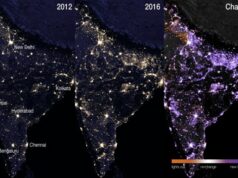The interim government of Bangladesh, led by Nobel Laureate Muhammad Yunus, has expressed a desire to resolve trade tensions with India after New Delhi imposed new restrictions on Bangladeshi exports via land ports.
The Indian Ministry of Commerce and Industry issued the curbs on Saturday, acting on directives from the Directorate General of Foreign Trade (DGFT).
Reacting to the development, Sheikh Bashir Uddin, the Commerce Adviser to Bangladesh’s interim government, told reporters at the Secretariat that the country is yet to receive official communication from India.
“We will take appropriate steps once we are formally informed. If any problems emerge, both sides should engage in dialogue to resolve them,” he said, according to the United News of Bangladesh (UNB).
Bashir Uddin added that they have learned through media and social platforms that India has restricted trade at specific land ports, including Akhaura and Dawki, and other border areas.
When asked about the potential impact on exports, he clarified that not all sectors are affected.
He highlighted that Bangladesh’s garment industry, which constitutes a major portion of the country’s exports, remains competitive and is still valued by Indian importers.
“Despite India’s strong textile industry, they continue to import our garments due to our production strengths,” he said.
He expressed confidence that trade will endure, stating it serves the interests of both nations’ consumers and producers.
Trade Tensions Escalate
India’s new restrictions, which affect goods worth approximately $770 million, limit the entry of several key Bangladeshi products—such as garments, processed foods, and plastics—through land routes, rerouting them to select sea ports or banning them outright from overland access.
According to ANI, India’s move follows a series of trade restrictions imposed by Bangladesh in recent months.
These include a ban on Indian yarn imports through major land ports since April 2025, tighter controls on rice imports, and outright bans on Indian paper, tobacco, fish, and powdered milk.
Bangladesh also introduced a 1.8 BDT per tonne per kilometre transit fee on Indian cargo passing through its territory.
Analysts suggest that India’s decision is a measured response to Bangladesh’s escalating trade barriers and its growing strategic alignment with China, rather than an attempt to isolate Dhaka.
(With inputs from IBNS)





